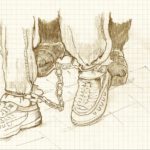
And every day, groundhog day
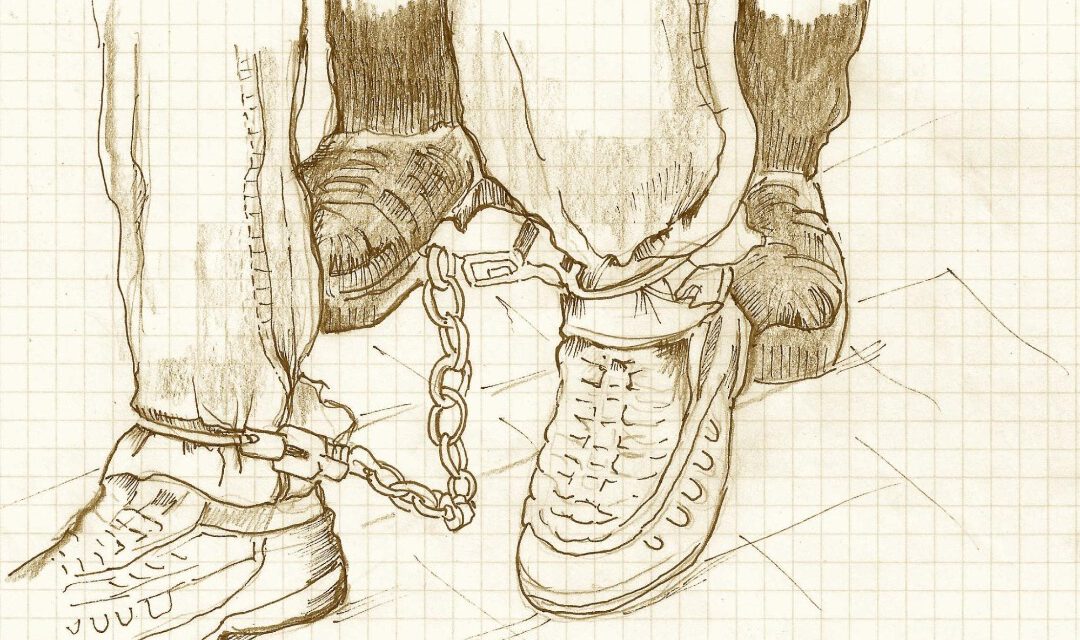
37th day of the trial of Dr. Reiner Füllmich
The 37th day of the trial of civil rights activist Dr. Reiner Füllmich, under the direction of Judge Carsten Schindler at the Göttingen District Court, once again proved that in these dark days, no public prosecutor is needed to ensure the legal prosecution of a dissident. A mixture of evidence-obstructing jurisprudence and misanthropy characterizes the proceedings, which have kept Dr. Reiner Füllmich in pre-trial detention for over a year and in isolation torture for months.
“In a criminal case, the guilt or innocence of the defendant is to be determined and a just verdict is to be passed.” This is still the position of the Lower Saxony Ministry of Justice. However, this apparently does not apply to the District Court in Göttingen. It refuses to allow the accused to present exonerating evidence by questioning witnesses or to have the credibility of incriminating witnesses examined, as in the case of the actors V. Fischer and J. Hoffmann, who initiated the persecution of the civil rights activist with their fellow actors M. Templin and A. Fischer.
According to § 244 of the Code of Criminal Procedure, the following applies in paragraph 2: “In order to ascertain the truth, the court shall, ex officio, extend the taking of evidence to all facts and means of evidence that are of importance for the decision.” This also applies to exonerating facts and evidence. The behavior of the Göttingen judges suggests that they only want to collect incriminating facts and evidence. Can this be seen as prejudice? The intent to convict seems unmistakable.
According to § 160 of the Code of Criminal Procedure, the public prosecutor’s office is also obliged to investigate all relevant facts and evidence. Paragraph 2 states: “The public prosecutor’s office shall investigate not only the circumstances serving to incriminate but also those serving to exonerate and shall ensure that evidence is adduced which is in danger of being lost.” Neither prosecutor John nor his colleague Recha have so far shown a sufficiently recognizable interest in a comprehensive investigation of the facts.
What is remarkable about the Göttingen trial is the fact that the district court has largely excluded the public. Although people can enter the courtroom, but since the motions and submissions of the defense are only accepted in writing by the court (self-reading procedure), this violates the rules of the Court Constitution Act and the EU Convention on Human Rights:
“The principle of public proceedings is laid down in section 169 (1) sentence 1 of the German Court Constitution Act (GVG). According to this norm, the oral main proceedings before the court, including the pronouncement of judgments and decisions, are public. Further legal bases that prescribe the principle of public proceedings are Article 6 of the European Convention on Human Rights (ECHR) and Article 14 (1) sentence 2 of the UN Covenant on Civil and Political Rights. In addition, § 272 no. 5 of the Code of Criminal Procedure (StPO) presupposes the principle of publicity.“
”The principle of publicity is, alongside the principles of immediacy and orality, one of the fundamental procedural maxims in German court proceedings. According to this, a court hearing must in principle take place in public, so that in principle, even those who are uninvolved in the proceedings can attend. This principle ensures, in particular, the rule of law of the criminal proceedings.”
The district court is actively preventing the public from attending and thus any constitutional scrutiny of its own actions. Under Carsten Schindler, the district court is ensuring that exonerating evidence does not become public, thus not only violating the rules of the GVG and the ECHR, but also violating the rights of the persecuted. It is therefore right to be criticized for pursuing only one goal in the entire trial: to keep the human rights activist and educator Dr. Füllmich out of circulation for as long as possible, by hook or by crook.
In principle, self-reading is useful under certain conditions – for example, when a request or file contains hundreds or even thousands of pages. Reading them out in the courtroom is not indicated for reasons of time economy. „However, the principle of orality is increasingly being restricted by the self-reading procedure according to § 249, section 2 of the Code of Criminal Procedure. According to this, reading of a document or written material can be dispensed with in order to simplify proceedings if the judges and lay judges have taken note of it and the other parties involved have had the opportunity to do so. In view of this regulation, there have been justified warnings of the danger of true “ghost trials” in which “essential proceedings no longer take place in front of an audience, no press representatives and probably no lay judges either” (Hamm, StV 1994, 457).“
The District Court of Göttingen, under the direction of Carsten Schindler, has introduced the general self-reading procedure. This also applies to short motions to introduce evidence and submissions by the defense, and even to the defendant’s right to ask questions. This does not save any time but is a disadvantage for the defendant and for public control of the court. The absurdity is that the court withdraws for “self-reading” while interrupting the proceedings – this obviously does not save any time at all – this secrecy behavior serves exclusively to prevent transparency and the legally guaranteed public nature of the proceedings.
Dr. Reiner Füllmich has been tortured for months
On the 37th day of persecution, all applications by the persecuted man and his lawyers were rejected. An end to the white torture to which Dr. Füllmich has been subjected for months was also demanded. But Carsten Schindler apparently wants the persecution of the persecuted to continue. According to international definitions, white torture includes the brutal shackling of Dr. Reiner Füllmich (he is chained with handcuffs and shackles for each transport, with his hands additionally attached to a waist belt!), as if the 66-year-old lawyer were a dangerous person or a defendant in a terrorist trial.
His humiliation through repeated undressing and physical inspections on each day of the proceedings are also methods of white torture and are the order of the day in many other totalitarian regimes, in order to break the victims and to injure them without visible physical damage.
„Another common and well-known method of white torture is the so-called solitary confinement, in which the victim is cut off from social needs (including interpersonal communication, information and emotional support) and from substantially necessary organic–sensory sensory impressions (seeing, hearing, smelling, tasting and touching) (deprived). Among other things, it causes significant impairment of the functioning of the vegetative nervous system as well as of perception and cognitive ability and aims to destroy mental balance in order to force the prisoner to confess or to cooperate with his torturers or to destroy him psychologically.“
On the 37th day of the trial, Reiner Füllmich announces two criminal charges against the public prosecutor and the professional judges of the chamber, on the one hand for perversion of justice in relation to the conduct of the main hearing (prevention of any further taking of evidence since the beginning of May 2024 despite reinterpretation of the legal accusations with legal notice of May 3, 2024 3.05.24), on the other hand for grievous bodily harm and attempted homicide, based on the physical and psychological abuse of Reiner Füllmich in custody, which has now been going on for several months (isolation, sleep deprivation, harassment and defamation by the prison management and some of the prison officers) as well as during transport (handcuffing, forcing him to wear a bulletproof vest, escorting him with heavily armed officers, constantly putting him in a shooting scenario, humiliating undressing and body inspection before and after appointments, etc.).
And every day it’s the same old story
The 37th day of the trial begins at 10 a.m. Lawyer Tobias Pohl and defense attorney Katja Wörmer had previously been in the “dungeon” – the court’s basement cell – with Dr. Reiner Füllmich. At the beginning of the proceedings, the defense again requested to be allowed to consult with the client in the basement cell first, in particular regarding the newly issued order of the Braunschweig Higher Regional Court (an order intended to ensure the further prosecution of Füllmich and to influence the ongoing proceedings).
How did the presiding judge Carsten Schindler decide? Request denied!
Despite this, defense attorney Katja Wörmer brings up the order issued by the Braunschweig Higher Regional Court on November 6, 2024, with which the complaint of the Göttingen public prosecutor’s office was granted and the opening of the main proceedings was allowed for 16 further suspicions against Reiner Füllmich.
These second proceedings concern the monthly payments for the communication work with the supporters, fans and interview partners of the Corona Committee, in particular the processing of e-mails, telephone calls, but also postal communication, etc. by the law firm of Reiner Füllmich.
As a reminder: Dr. Reiner Füllmich never transferred money in any kind of secret way. For all movements, there are either loan agreements or invoices. All movements can be found in the committee’s accounting and financial statements, and the financial statements were countersigned by the attorney Viviane Fischer.
The chairman points out that the proceedings should not be combined, even if they are subject to cumulative penalties. The chamber wants to conclude the present proceedings and issue a partial judgment before opening further new proceedings. Both Katja Wörmer and Christoph Miseré therefore initially request that the proceedings be suspended so that they can consult with the client about the legal and factual consequences of the decision of the Braunschweig Higher Regional Court. Christoph Miseré requests a suspension. Wörmer points out that an application will initially be made for a suspension, and then, after consultation, possibly for a further stay of the proceedings. The chamber withdraws.
How did the presiding judge Schindler decide? Motion denied.
Lawyer Wörmer submits three further motions to take evidence from Reiner Füllmich, including a presentation of his financial situation. Füllmich was a successful lawyer and very wealthy. The value of his real estate alone was well over two million euros before the Corona pandemic. His law firm was also never in a financially difficult situation – both before and during the Corona Committee. The court apparently does not want the claim that Dr. Reiner Füllmich acted out of economic necessity to be refuted. They apparently urgently need a motive for an act that they are desperate to prove he committed.
At the same time, Füllmich requests credibility reports on the witnesses for the prosecution, Viviane Fischer and Dr. Justus Hoffmann. The two actors provided the court with contradictory bases for the prosecution of Füllmich.
Katja Wörmer also requests the oral submission of the application and again refers to the violation of the public and oral proceedings in the criminal proceedings by the ordered, unexceptional self-reading procedure (see above).
Defense attorney Miseré announces a motion regarding existing procedural obstacles, which in his opinion should lead to the immediate termination of proceedings, but insists on the oral filing of the motion.
Attorney Siemund presents two motions to take evidence and joins his two colleagues in requesting the oral filing of the motion. The chamber withdraws for deliberation.
How did Judge Schindler rule? All motions denied.
Defense attorneys Siemund and Wörmer then submit their motions in writing. The presiding judge announces that the chamber will withdraw to read and deliberate on the motions; the proceedings will resume after the break, including the lunch break, at 12:30 p.m.
After the lunch break, the presiding judge again announces that all motions to take evidence will be decided only in the judgment, that is, they are rejected.
Wörmer again makes two requests: firstly, for an examination of Dr. Reiner Füllmich by a doctor he trusts, who would first have to be granted access to the prison by the court. Secondly, for the immediate lifting of the special security measures during the transport of Reiner Füllmich, such as handcuffing and the repeated recommendation of wearing a bulletproof vest. Both motions are submitted as motions for a court decision in response to a question from the presiding judge. Two separate expedited proceedings are opened in relation to these motions. In addition, she requests that the start of the proceedings be rescheduled for 10 a.m. in the future, taking into account three defense attorneys who are not from the area.
How did Presiding Judge Schindler rule? The motion was denied.
Prosecutor Recha again complained that the defense was allegedly delaying the proceedings by repeatedly filing further motions to introduce evidence and refusing to present its closing arguments. She said that the defense was harming the defendant, who could otherwise have been released long ago. Defense attorney Wörmer took this as an opportunity to point out that the public prosecutor’s office and the court apparently wanted to keep the pre-trial detention as short as possible, but the prison sentence all the longer, by applying the so-called principle of acceleration.
The public prosecutor’s statement is absurd: he seriously complains that the lawyers of the persecuted want to present exonerating evidence? He himself could and should make the same requests and then allow the court to consider the evidence. That is the assumption of a legal process.
Katja Wörmer makes it clear that by demanding a prison sentence of three years and nine months while maintaining the arrest warrant, the public prosecutor’s office wants to make it impossible to release the defendant, even if convicted. This is also supported by the decision of the Higher Regional Court of Braunschweig to open proceedings on the 16 further allegations regarding the (transparent) billing of services for the Corona Committee, which has now been issued only after a delay of six months. The opening of these second substantive proceedings is clearly intended to keep the defendant in pre-trial detention, even beyond the current criminal proceedings.
In addition, by ordering the self-reading procedure and vehemently preventing further evidence from being taken, the court has been delaying any progress in the proceedings and any further clarification of the facts for several months now, namely since the beginning of May. However, this is the highest procedural maxim, as is the defendant’s right to a fair hearing (see above).
Finally, Mr. Siemund agreed to begin his closing statement. He first read two of his own motions to introduce evidence, one to examine whether Reiner Füllmich’s sleep behavior had been disturbed due to his long period of detention, suggesting a medical specialist examination or observation in a sleep laboratory. On the other hand, he presents the statements of a representative of a human rights organization, which, among other things, refer to a study according to which prisoners already have a significantly increased risk of death from this measure after just one week of solitary confinement in the five years after the end of this prison situation. Reiner Füllmich, on the other hand, has been in isolation from the other prisoners for several months.
Siemund then reads out Reiner Füllmich’s own motions to introduce evidence from today, which the court had previously refused to consider until the judgment. In two places, the public is excluded to protect the personal rights of the parties concerned, and the trial observers have to leave the courtroom for several minutes at a time.
The mood in the courtroom is extremely tense, with some verbal sparring, particularly from defense attorneys Siemund and Miseré.
The presiding judge closes the proceedings after reading the documents at around 3:30 p.m.
The next groundhog day is Thursday, November 14, 2024 at 9:15 a.m.
This report is based on the minutes of the proceedings by the lawyer Katja Wörmer, supplemented by the author’s own research on individual factual and legal issues.
White Torture: https://de.wikipedia.org/wiki/Weiße_Folter
Principle of Publicity: https://www.juraforum.de/lexikon/oeffentlichkeitsgrundsatz
oral proceedings / public: https://www.redeker.de/assets/pdf/lehrmaterial/2020/9/StPR%20I%20-%20SS%202020%20-%202.6%20Muendlichkeit%20und%20Unmittelbarkeit.pdf
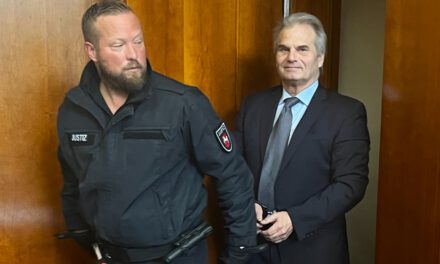
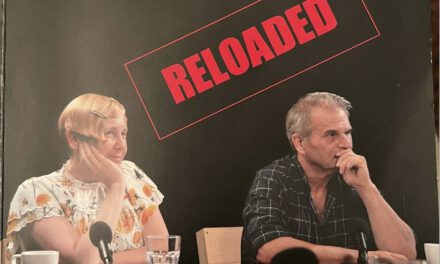
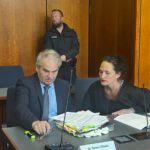

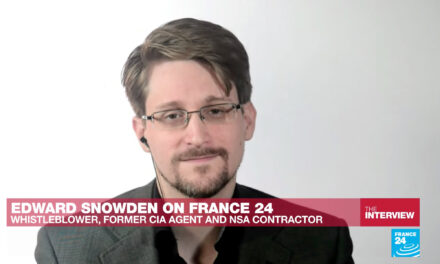




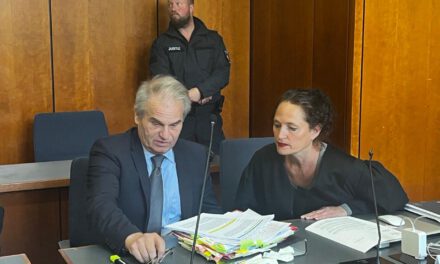
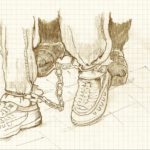


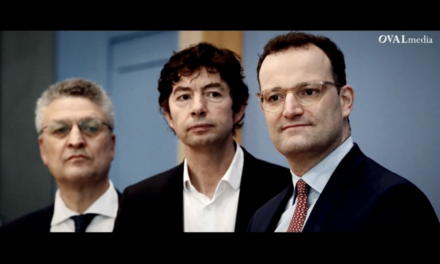
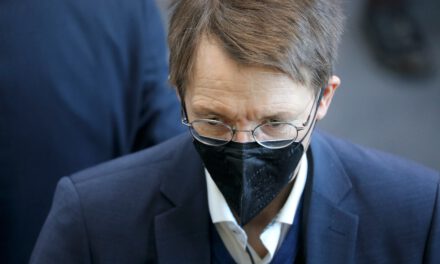

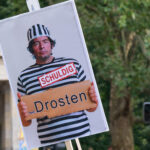

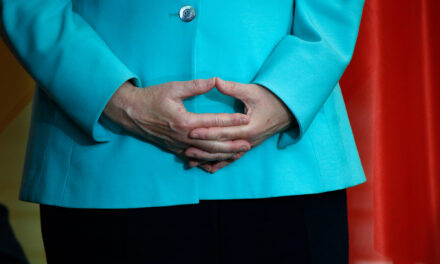




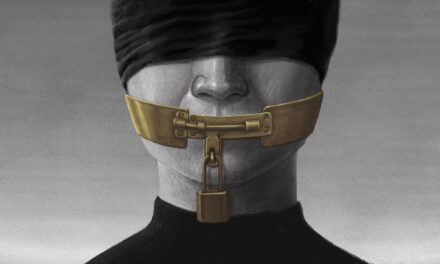




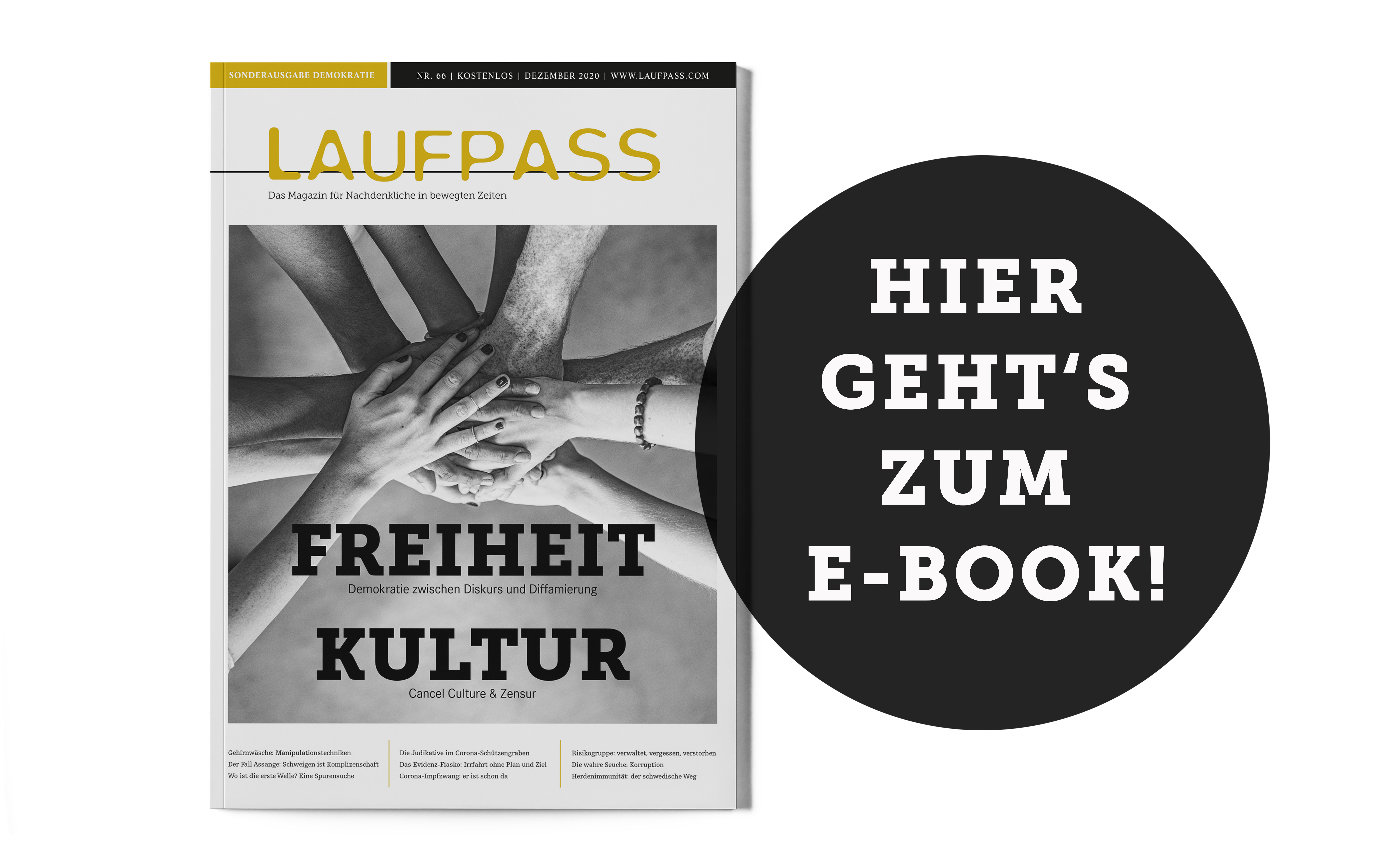
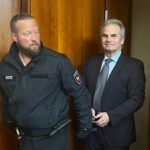



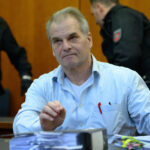
Ich bin ein Fan von Herr Fuellmich und wunderte mich um was es geht. Was hat er eigentlich getan, dass diese Leute ihn verfolgt und verjagt haben? Hier gibt es fast kein Infos. Danke.